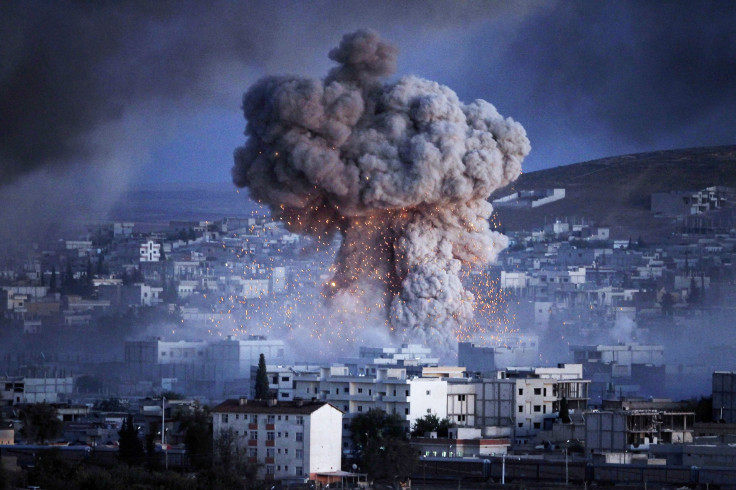ISIS Chemical Weapons: Islamic State Group Has Technical Expertise, Used Toxic Chemicals Earlier, Australia Says

Australia believes the Islamic State group has among its recruits highly trained technicians who are capable of building chemical weapons. In a speech late on Friday, Foreign Minister Julie Bishop said that the Sunni-militants have used toxic chemicals including sarin and chlorine over the past four years.
The ISIS' rise posed “one of the gravest security threats we face today,” Bishop said, while addressing the Australia Group, an informal forum of nations, which works to deny licenses for the export of chemical and biological weapon-related materials.
“Apart from some crude and small scale endeavors, the conventional wisdom has been that the terrorist intention to acquire and weaponize chemical agents has been largely aspirational,” Bishop reportedly said at the meeting in Perth. “The use of chlorine by Daesh [the Arabic acronym for ISIS], and its recruitment of highly technically trained professionals, including from the west, have revealed far more serious efforts in chemical weapons development.
“Daesh is likely to have amongst its tens of thousands of recruits the technical expertise necessary to further refine precursor materials and build chemical weapons,” she said.
Bishop’s comments follow accusations by Iraq’s autonomous Kurdistan government in March that it had evidence the ISIS used chlorine gas against its fighters in northern Iraq in January. Analysis of soil and clothing samples taken after an ISIS car bombing in January confirmed the use of chlorine gas, Agence France-Presse reported.
“The fact that atrocities such as this continue to occur shows that we must remain vigilant to the threat of chemical and biological weapons,” Bishop reportedly said, referring to the alleged use of chemical weapons in Syria. “Export controls and their effective implementation are as important as ever as threats to global security continue to evolve.”
Australia has been concerned over the growing number of citizens traveling to the Middle East to fight alongside ISIS militants. According to the Australian government, more than 100 Australians are suspected to have joined ISIS and other terrorist groups in Syria and Iraq, and about half of them have dual citizenships. Another 150 people are reportedly believed to be supporting ISIS from within the country.
© Copyright IBTimes 2024. All rights reserved.











